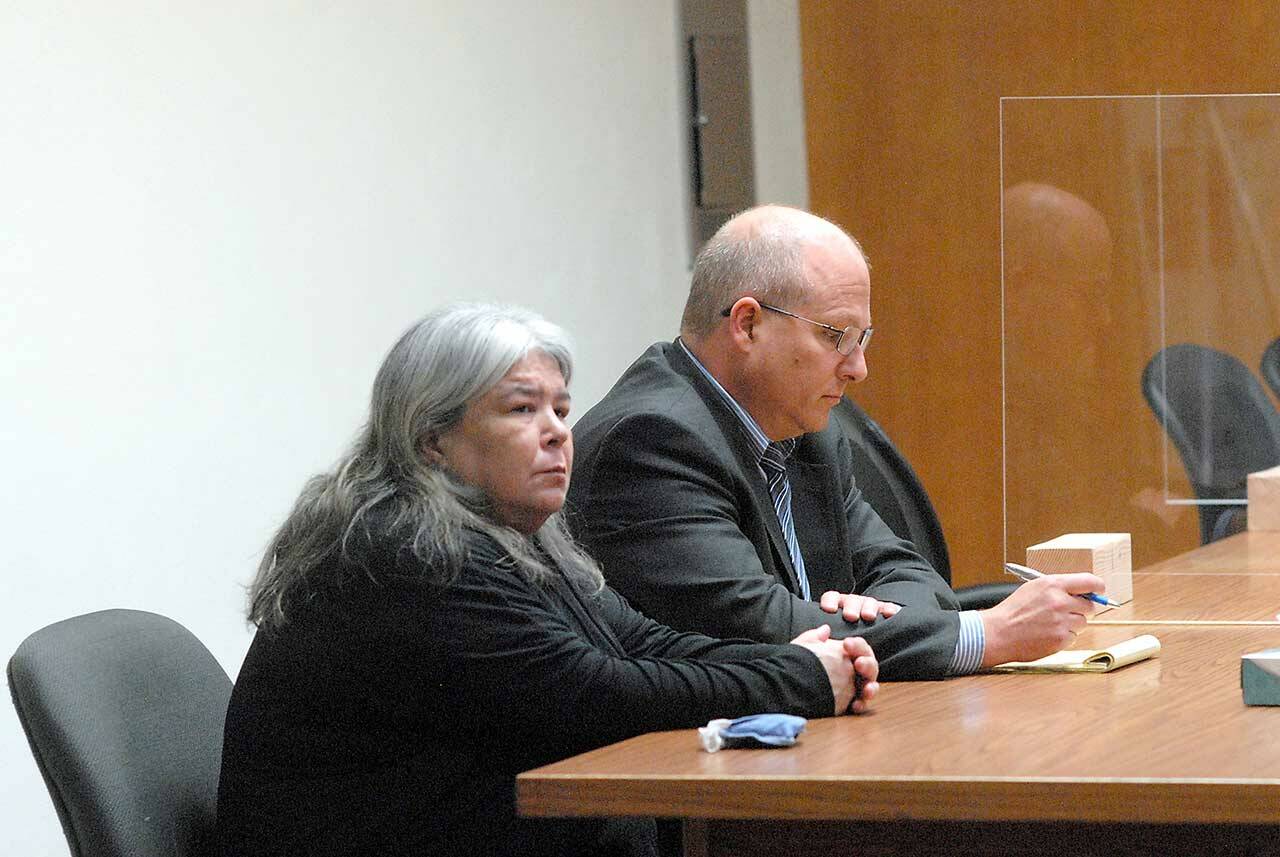A 50-year-old Sequim woman on Sept. 13 was sentenced to more than 17 years in prison for second-degree attempted murder and first-degree assault after repeatedly stabbing a wheelchair-bound man in the neck two years ago.
A jury on July 2 found Larissa Jean Dietz guilty of second-degree attempted murder from her Oct. 8, 2019, attack on the late Ricky Lee McGowan, 58, in his apartment at the Sunbelt Apartments in Sequim.
The two were friends, and Dietz helped him with chores and errands, according to court documents.
McGowan recovered from his wounds but spiraled deeper into alcoholism following the assault, Deputy Criminal Prosecuting Attorney Sarah Woolman said in arguing for a 20-year sentence.
Judge Simon Barnhart sentenced Dietz to 208 months, including the 24 months mandatory punishment for Dietz’s use of a deadly weapon and applying an additional 24 months incarceration for McGowan’s condition as a vulnerable victim as an aggravating circumstance.
The jury applied them to both crimes in their verdicts.
Dietz’s 2-inch folding knife caused 21½ inches of wounds on McGowan, who had broken his hip a month before the attack.
“Either he was wheelchair bound or reliant on a walker to assist him in mobility,” Barnhart said.
“That made him vulnerable to the type of attack that we learned about at trial,” he added.
“The court has a job to do and a hard one at that, and it’s essential that the court take sentencing considerations very seriously and particularly when they relate to the kind of violent crime that we have here.”
Mental health evaluators had determined Dietz has post-traumatic stress disorder, major depressive disorder and substance abuse disorders, according to court documents.
She was molested in grade school, attacked when she was 13, and assaulted by five people who beat her and removed her clothing when she was 24, she told mental health evaluators.
Dietz was determined to be mentally competent to stand trial.
“I’ve lived every day with what’s happened,” she told Barnhart, crying, before her sentencing.
“I have so much regret.
“The thing I have to say is that something must have happened, that I was in fear for my life,” she said.
Dietz had claimed McGowan groped her.
“People that are making statements, they were not there, they do not know what happened, and I am sorry.”
Dietz’s lawyer, Karen Unger of Port Angeles, filed a notice of appeal after Dietz’s sentencing.
Unger did not deny that Dietz attacked McGowan but disputed the 20-year-sentence recommendation, pointing to a two-page letter dated Sept. 9 from mental health therapist Emma Jane Watson, Dietz’s therapist for 22 months.
Watson said Dietz, who has three children, did cocaine and drank alcohol as a pre-adolescent, has flashbacks, has experienced severe sexual, emotional and physical abuse, has suffered traumatic brain injury and displays symptoms of mental illness,
Dietz’s personal history “is defined as who she is,” Unger said.
“We can’t forget our humanity,” she added.
“Essentially the state is saying she’s too dangerous, lock her up, don’t consider her a person, consider her offense only.
“Her history is defined by who she is because of her mental health circumstances, and the system doesn’t seem to be able to address people like Ms. Dietz.”
Unger speculated that 80 percent of people in the county jail have mental health and substance abuse issues.
“Ms. Dietz is sort of the trifecta, and she is the example of the failure of our system.”
Woolman argued that Dietz’s trauma did not justify the level of violence against McGowan, describing it as “this incredibly, incredibly violent assault.”
Woolman said there was a significant risk of Dietz reoffending considering her assaultive behavior over the past 18 years.
“The state is not denying that Ms. Dietz has a diagnose of post-traumatic stress disorder and complex trauma,” she said.
“She has been in treatment on and off for a decade for this particular issue, so much so that the state believes it becomes her justification for doing these things,” she said.
“She has a self-awareness about this.”
According to a mental health evaluator, Dietz is aware she is more violent when drinking alcohol, Woolman said.
Dietz and McGowan were drinking the night of the assault, according to court records.
“Post-traumatic stress disorder does not mitigate inflicting this level of violence and trauma on another person and to those who happened upon the trauma.”



